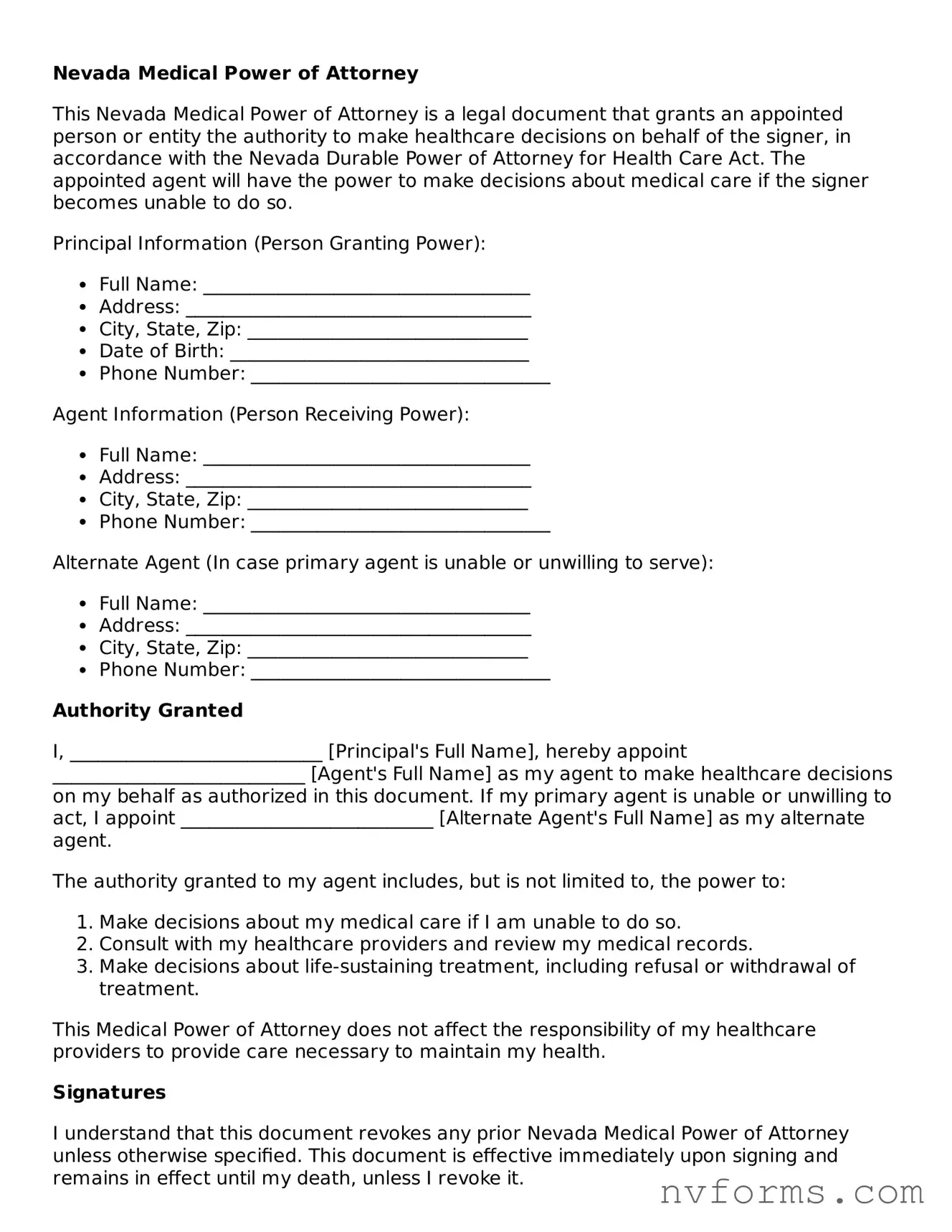Nevada Medical Power of Attorney
This Nevada Medical Power of Attorney is a legal document that grants an appointed person or entity the authority to make healthcare decisions on behalf of the signer, in accordance with the Nevada Durable Power of Attorney for Health Care Act. The appointed agent will have the power to make decisions about medical care if the signer becomes unable to do so.
Principal Information (Person Granting Power):
- Full Name: ___________________________________
- Address: _____________________________________
- City, State, Zip: ______________________________
- Date of Birth: ________________________________
- Phone Number: ________________________________
Agent Information (Person Receiving Power):
- Full Name: ___________________________________
- Address: _____________________________________
- City, State, Zip: ______________________________
- Phone Number: ________________________________
Alternate Agent (In case primary agent is unable or unwilling to serve):
- Full Name: ___________________________________
- Address: _____________________________________
- City, State, Zip: ______________________________
- Phone Number: ________________________________
Authority Granted
I, ___________________________ [Principal's Full Name], hereby appoint ___________________________ [Agent's Full Name] as my agent to make healthcare decisions on my behalf as authorized in this document. If my primary agent is unable or unwilling to act, I appoint ___________________________ [Alternate Agent's Full Name] as my alternate agent.
The authority granted to my agent includes, but is not limited to, the power to:
- Make decisions about my medical care if I am unable to do so.
- Consult with my healthcare providers and review my medical records.
- Make decisions about life-sustaining treatment, including refusal or withdrawal of treatment.
This Medical Power of Attorney does not affect the responsibility of my healthcare providers to provide care necessary to maintain my health.
Signatures
I understand that this document revokes any prior Nevada Medical Power of Attorney unless otherwise specified. This document is effective immediately upon signing and remains in effect until my death, unless I revoke it.
Principal's Signature: _______________________________ Date: ____________
Agent's Signature: _________________________________ Date: ____________
Alternate Agent's Signature (if applicable): _________________________ Date: ____________
State of Nevada
County of ____________
This document was acknowledged before me on __________________ [Date] by ___________________________ [Name of Principal].
____________________________________
Signature of Notary Public
My commission expires: _______________

